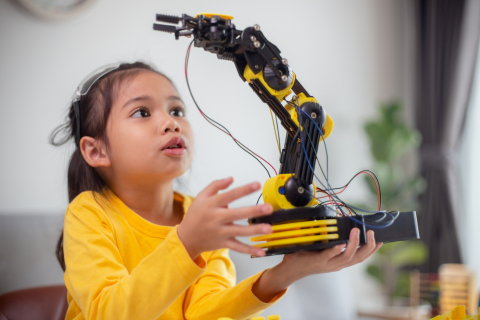 The University of Minnesota’s prolific Deborah Ruf, a giftedness expert, published a recent study about how parents’ views and personalities affect the outcomes of gifted children in Gifted Education International. She reports data from 56 gifted children in the USA who had been studied over the course of over 17 years. That kind of data is incredibly rare and invaluable to science because it can provide insight into the way things affect children over time.
The University of Minnesota’s prolific Deborah Ruf, a giftedness expert, published a recent study about how parents’ views and personalities affect the outcomes of gifted children in Gifted Education International. She reports data from 56 gifted children in the USA who had been studied over the course of over 17 years. That kind of data is incredibly rare and invaluable to science because it can provide insight into the way things affect children over time.
But before we get into that, it’s important to outline what Ruf means when she talks about giftedness. She uses a system of ‘Level One’ through ‘Level Five’ giftedness. The categories take into account children’s standardized intelligence testing scores, mastery of age-appropriate educational curricula, and ability to fit in with same-age peers. Level One Giftedness is characterized by children who fall between the 90th to 98th percentiles on intelligence tests, are slightly ahead of age-appropriate curricula, and can get along with age-appropriate classmates with relative ease. Level Five Giftedness, the other side of the spectrum, includes children who score in the 99th percentile on intelligence tests, tend to be several years ahead of their age-appropriate school curricula, and struggle to integrate socially with age-matched peers. Basically, level one is ‘a little’ and level five is ‘a lot’.
 Okay, so now we know (roughly) who the gifted children are in Ruf’s study. We also need to know how she quantified parental viewpoints. Overall, she defines a parental viewpoint as the way a parent looks at the outcome goals for a child’s life. Parents’ viewpoints could include things like believing their child should focus on finding friends, achieving in school, or participating in a variety of activities. When thinking about these topics, some parents might have a predetermined goal that they define for the child and are clear that the child needs to work toward that goal. A different viewpoint could be that they think their child should explore options and develop goals based on their own interests. According to Ruf, the parental viewpoint also includes the parents’ beliefs about who is responsible for helping the child attain those goals.
Okay, so now we know (roughly) who the gifted children are in Ruf’s study. We also need to know how she quantified parental viewpoints. Overall, she defines a parental viewpoint as the way a parent looks at the outcome goals for a child’s life. Parents’ viewpoints could include things like believing their child should focus on finding friends, achieving in school, or participating in a variety of activities. When thinking about these topics, some parents might have a predetermined goal that they define for the child and are clear that the child needs to work toward that goal. A different viewpoint could be that they think their child should explore options and develop goals based on their own interests. According to Ruf, the parental viewpoint also includes the parents’ beliefs about who is responsible for helping the child attain those goals.
 There are a lot of details in the study that I’ll skip here, but check out the paper if you’re interested! What I will say is that, overall, Ruf found that parents’ viewpoints and attitudes played a HUGE role in the outcomes of their gifted children. Specifically, “When parents discover what works most naturally for their child’s ways of learning, they can take positive actions to find an environment that already exists or they can establish an environment that opens up a good ‘fit’ not only in their child’s learning and academic realm, but in the social, emotional, and eventual adult career domains, as well.” Of course, every mom and child is different, but overall, Ruf reports that gifted children appreciated and benefitted from their moms’ involvement and attempts to understand their experiences.
There are a lot of details in the study that I’ll skip here, but check out the paper if you’re interested! What I will say is that, overall, Ruf found that parents’ viewpoints and attitudes played a HUGE role in the outcomes of their gifted children. Specifically, “When parents discover what works most naturally for their child’s ways of learning, they can take positive actions to find an environment that already exists or they can establish an environment that opens up a good ‘fit’ not only in their child’s learning and academic realm, but in the social, emotional, and eventual adult career domains, as well.” Of course, every mom and child is different, but overall, Ruf reports that gifted children appreciated and benefitted from their moms’ involvement and attempts to understand their experiences.
There are all types of parenting resources offering strategies for how to parent gifted children. In fact, here is one from Deborah Ruf herself! Parenting resources are definitely valuable! What is often overlooked, however, is the MOM part of the equation and that is where I specialize my services! Here are some questions to ask yourself about your mom job:
- When my child looks back at age 21, how do I want them to describe who I was as a mom?
- How did they experience me?
- How did I behave?
- What were my most important contributions to their life?
- How do they feel about me now?
- What steps do I need to take to be that mom?
Note: In my personal and professional experience, this often means getting some parenting help. Just be sure to use a resource that has true expertise in parenting gifted children!
Please reach out if you are interested in learning more about my services!
Citation: Ruf, D. L. (2021). How parental viewpoint and personality affect gifted child outcomes. Gifted Education International, 37(1), 80 – 106. https://doi.org/10.1177/0261429420946072
